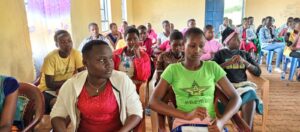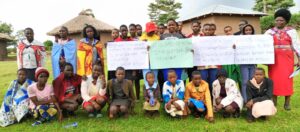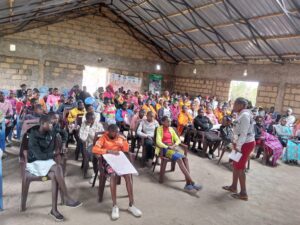The life of an indigenous girl is hindered by a number of challenges female genital mutilation (FGM) being one of them. In pastoralist communities like Narok, Kajiado and Samburu and Turkana there are many cases of FGM going on. It is believed to be a bridge from childhood to adulthood among the girls. A large proportion of the girls undergo the rite are between six and ten years. This is a tender age where they have begun their schooling. The pain experienced during the exercise affects them physically such that they are not able to attend school for at least 20 days during the healing process. The girls are also affected psychologically in the long run. As a result, their education is affected and do not perform like their counterparts who do not undergo the rite.
In many cases, Men are contributing to rising cases of FGM since they openly say they cannot marry a woman who have not undergone the cut and on the other side women are their own enemies since they are the ones who perform the practice to girls. FGM practice affects girl child education by contributing to; school dropout, early pregnancies, early marriages and polygamy. FGM also leads to infection of HIV and AIDS during circumcision. FGM is recognized as a harmful practice which abrogates human rights. It is prohibited by law in several African and Western countries though some communities still do it in secret.
The incident of a Kuria girl who was beaten nearly death by his brothers and on top of that forced to undergo the cut is still fresh in our minds lucky enough they were arrested and prosecuted in the court of law. the local leaders, the government together with other stakeholders should work together in trying to have a Community free of female Genital Mutilation through participatory and advocacy for education in traditional practices relating to culture. In the past, uncircumcised girl couldn’t speak before people since people could mock her but today its vice versa where they got the full courage and confidence unlike their fellows who have undergone the cut.
From a personal experience back in the village, the practice is still done in some very unique criteria where girls are sent to greet their relatives where the event is going to take place where it’s far from home and anyone who will try to rescue the girls or even report the incident to the relevant authority you will be cursed, intimidated or even excommunicated from the community and anytime you need help nobody will show up. This habit has silenced the majority and let the girls suffer and when they report by themselves they will also face intimidation from their parents where they tell them once they forward them they will not pay them school fee or might even be chased from home.
During events in the village if you are given a chance to speak and by chance you talk about FGM, the whole crowd will shout for the programmer to grab a microphone from you because you are speaking nonsense. Viva girls’ program which is initiated by Olorukoti resource and knowledge center with the support of IIN and MADRE is really working well in advocating for rights of indigenous girls in Trans Mara west sub county in Narok county. Through experts many girls have been trained on the effects of FGM during the holiday and since the beginning of the trainings in different parts, the voice of a girl can now be heard just like that of boys and the target is having zero FGM cases in the community and seeing the dreams of girls achieved in future.



